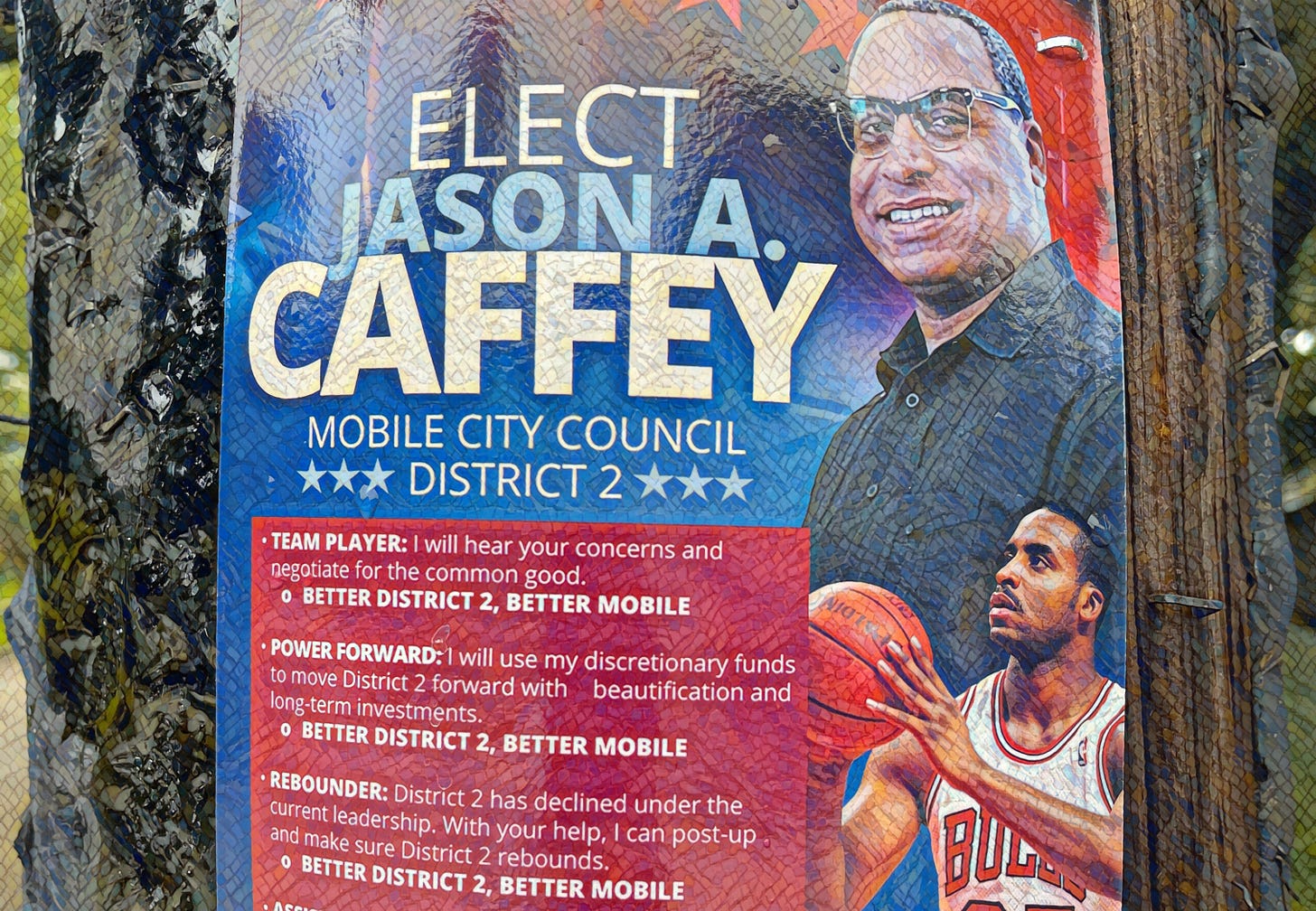The "Great Awakening" isn't trickling down to local politics
Even a former NBA champ can't draw votes in a recent municipal election in Mobile, AL.
Even though they featured a former teammate of Michael Jordan, last week’s televised debates on the eve of Mobile’s municipal elections weren’t exactly Must See TV.
Many of the candidates were awkward and underprepared, including the taciturn former Bulls forward Jason Caffey turned city council candidate. But the debate I saw was refreshing for its stubborn commitment to the hyperlocal.
The most-talked about topic wasn’t COVID, critical race theory, or gun control (though vaccines should have been a bigger topic considering the low vaccination rate here). It was the Azalea City’s drainage systems, or lack thereof.
Nearly every one of District 2’s six candidates cited repairing downtown’s overflooding drainage systems as a top priority they’d address if elected. As if determined to prove their point, Hurricane Ida dumped several inches of rain on coastal Alabama and many streets—including mine—were waterlogged or flooded, making the streets and sidewalks difficult to navigate.
It’s an issue that regularly affects the material existence of the citizens here, yet it’s the kind of issue that doesn’t move the needle in terms of voter turnout.
Mayor Sandy Stimpson was reelected with 19,700 votes out of approximately 34,000—a small fraction of the roughly 150,000 eligible voters, down significantly from the 50,000 who voted in the 2017 election. In comparison, 58 percent of Mobile County’s 182,000 voters cast ballots in the 2020 election. That was actually low in comparison with the rest of the country, the 2020 presidential election had the highest voter turnout of the 21st century, with 66.8% of citizens 18 years and older voting.
It’s not just an Alabama problem. In the New York mayoral primaries, combined Democratic and Republican turnout was 23% of registered voters, less than half of the 55% of registered voters who turned out for Joe Biden in November, despite the NYC mayor being one of the highest profile jobs in the country.
What 2020 may have underscored is just how big the specter of national politics and party identification with the Democrats or Republicans overshadow everything else in our lives. According to a 2017 study, partisan “partyism” is stronger than race, religion or ethnicity in the United States.
People are consuming information and opinion about politics more than ever but not about the kind that they can play a greater role in. Here in Mobile, local journalism has atrophied to the point where there is no longer a daily newspaper in Alabama’s fourth largest city.
Municipal elections are essential for shaping your daily existence, but non-partisan fights over money for schools, police, public transportation, and garbage collection aren’t an opportunity to express your identity.
The disparity between local and presidential elections isn’t a new feature of American democracy, of course. But some loud voices in the media saw the incredibly high turnout in 2020 as some turning point in American history in terms of civic participation.
“One day, we will look back on this time as the beginning of the great American awakening,” concluded Farhad Manjoo in the New York Times in November.
Or maybe people cast a vote for or against Trump and went back to sleep.
As for Caffey, his new political career is in doubt after finishing fourth with only 353 votes.




